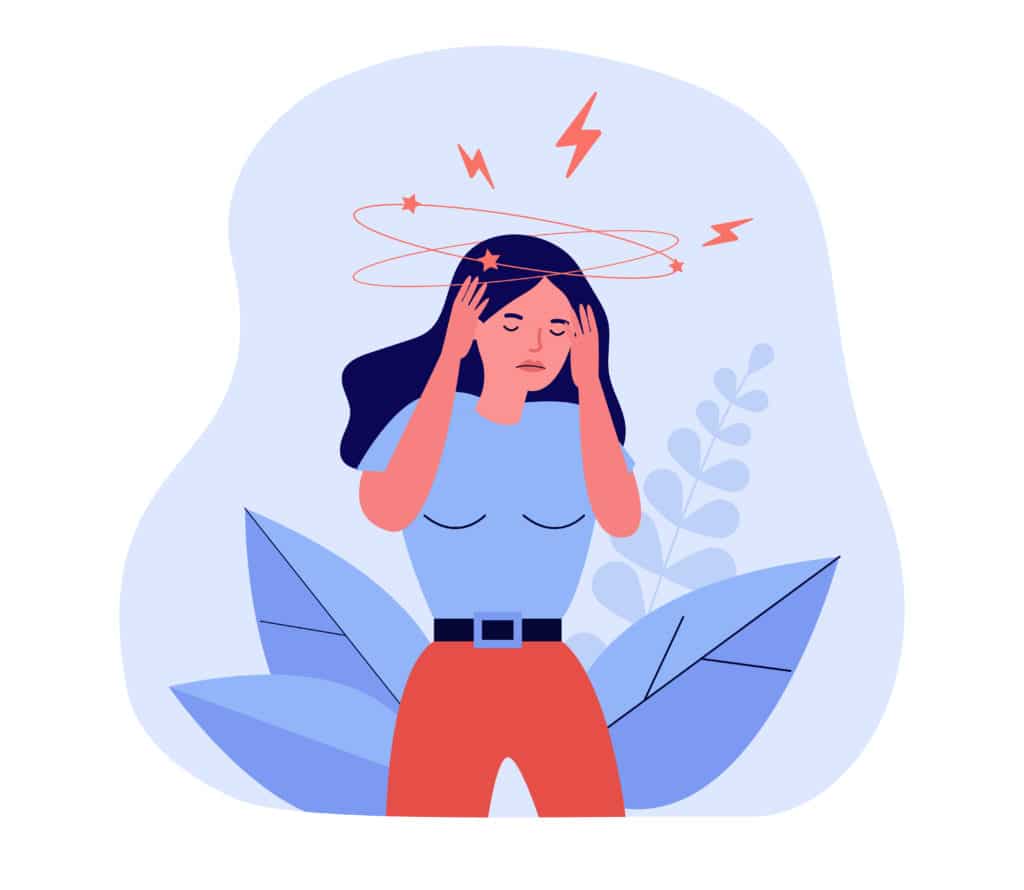
What is brain fog and how do you beat it?
Brain fog is a pretty common complaint with many potential causes. The most common complaint associated with brain fog includes slowed thinking, forgetfulness, difficulty concentrating, and a general experience of feeling “off.”
Brain fog is usually temporary but leads to a great deal of frustration when you desire to perform at your best. For people who experience brain fog that feels persistent or severe, it’s worth getting checked for underlying medical causes such as thyroid dysfunction, anemia, diabetes, depression, stroke, or cognitive decline.
For people who experience brain fog from time to time and want a fix – this article is for you. Let’s explore some common causes of brain fog, what supplements can fix it, and how you can find your way out of the fog naturally!
Common causes of brain fog
1. Sleep Deprivation
Sleep is your body’s number one source of healing. As you sleep your brain’s plumbing system, known as your glymphatic system, opens up allowing for cerebrospinal fluid to flow in and out of the brain. The washing in and out of these fluids helps your brain get rid of metabolic waste and toxic byproducts that build up during the day. Not only does this help keep your brain healthy, but it also helps it function optimally.
Low-quality sleep, snoring, sleep apnea, sleep disturbances, and poor sleep hygiene can all contribute to sleep loss and impede this very important cleansing process for the brain. Similar to only washing half of your body, getting insufficient sleep leaves the brain accumulating waste and functioning below its potential.
How to fix sleep-deprivation-induced brain fog: Sleep is very personal and there is never a one-size-fits-all solution. Take our sleep assessment and get your very own personalized sleep plan today. It contains the exact habits you need to work on based on your current habits, needs, and goals. You’ll also get our 44-page comprehensive sleep guide to help you truly unlock sleep as your superpower. Try it out today!
2. Stress
It’s not a surprise that stress is toxic, but did you know that it’s one of the main causes of brain fog? Hyperreactive stress response or leading a life with little to no downtime are all common reasons people feel on the edge of burning out. Living life in a state of chronic stress is detrimental to your health for many reasons, such as inflammation, poorer sleep quality, and poorer cognitive functioning (that’s just a fancy word for brain fog).
Just like how your body would get fatigued if you kept it running without a break, your brain also needs time to refresh itself in order to function properly. Over time, the chemicals created from chronic stress can even be toxic to your brain.
How to fix stress-induced brain fog: You can check out this article for some tips on getting your stress under control.
3. Past or Current Substance Use
Casual or prolonged alcohol or drug use can lead to changes in brain chemistry and structure that cause brain fog. This can feel like a mental haze, trouble concentrating, reduced memory and lowered frustration tolerance. While brain fog is generally most intense during the initial stages of stopping a drug, some amount of brain fog can feel like it lingers long after you’ve ceased using.
How to fix substance-induced brain fog: Doing your best to live a healthy life with regular exercise, quality sleep, sufficient downtime, and healthy eating can do wonders for recovery. If you have all of your habits in order and would like an extra edge, many people find supplements like Vinpocetine helpful for improving blood flow to the brain and boosting brain function, clear thinking, and memory.
4. Vitamin or mineral deficiency
Common deficiencies such as low vitamin D, K, magnesium or B12 can lead to cognitive symptoms such as brain fog. Another common deficiency is anemia, which can cause mental and physical fatigue.
How to fix deficiency-induced brain fog: You can have your levels tested to determine your deficiency and supplement accordingly. It is important to note that B vitamins are water-soluble, meaning that you can safely add B supplements to your diet without any risks.
5. Immune response/Inflammation
Chronic inflammation impacts every cell in your body. People with inflammation often experience brain fog because inflammation slows down brain activities, such as energy conduction between neurons. Inflammation can also lead the brain to tire more easily from basic daily activities, creating mental fatigue and slowed thinking. The brain has its own immune system made primarily of cells called microglia cells. Microglia cells outnumber neurons ten to one and maintain a healthy central nervous system. The inflammation tends to interfere with the “housekeeping” processes, which can accelerate cognitive decline.
How to fix inflammation-induced brain fog: If you know the cause of your inflammation, do your best to get it under control. Otherwise, the most important change to reduce brain inflammation is ensuring you get enough sleep. Additionally, you can make lifestyle changes such as eating more whole foods, exercising regularly, taking adaptogens, and supplementing with anti-inflammatory herbs such as curcumin and resveratrol.
6. Exposure to toxins
A common cause of brain fog is exposure to toxins, such as mould, heavy metals, herbicides, and byproducts from manufactured goods. You can do your best to eat organic, avoid synthetic products, choose BPA-free plastics, and buy high-quality seafood. However, some exposure is inevitable.
How to fix toxin-induced brain fog: You can protect your liver and detox your body with strategic supplementation. Supplements like milk-thistle, NAC, and Alpha Lipoic Acid help improve your liver’s functionality and reduce your toxic load. It can take some trial and error to discover what works best for you. For example, many bacteria associated with bacterial/fungal imbalances are sulphide-producers. Therefore, taking a sulphur-containing compound like NAC would result in feeding these imbalances rather than reducing them.
7. Your Diet
A diet high in processed foods and simple carbohydrates can lead to brain fog. Additives such as sodium nitrite, monosodium glutamate (MSG), sodium nitrate, and sodium/potassium benzoate commonly added to processed foods can contribute to neurological changes that cause some people to feel like they are living in a fog. Additionally, some artificial sweeteners such as aspartame, release toxic byproducts during metabolism– such as aspartic acid, phenylalanine, and methanol. These compounds can create unhealthy changes in the brain associated with brain fog. A diet high in simple carbohydrates such as simple sugars can also lead to cognitive difficulties, due to the resulting instability of blood sugar levels.
How to fix diet-induced brain fog: Cut out processed foods to determine if they are the cause of your brain fog. Aim to eat a balanced diet that includes nutrient-dense food, and good sources of choline such as eggs and salmon. You should also supplement with fish oil containing long-chain omega 3 fatty acids, DHA, as it can improve brain function, motor skills, and even vision.
8. Unknown reasons
Sometimes there’s no clear answer about what’s causing brain fog. In such cases, any number of factors could be contributing to feeling in a haze. Fortunately, there are many supplements available that can help boost your brainpower, improve your brains’ health, and help you think a little more clearly. Check out our ultimate brain fog supplement list here.
The Bottom Line
Brain fog can be incredibly frustrating to deal with, especially if you aren’t sure of the exact cause. Do your best to problem-solve using the above strategies, starting with improving your sleep. It’s possible to overcome this condition with some trial and error. Remember to always first check with your family physician to rule out any medical causes of brain fog.






